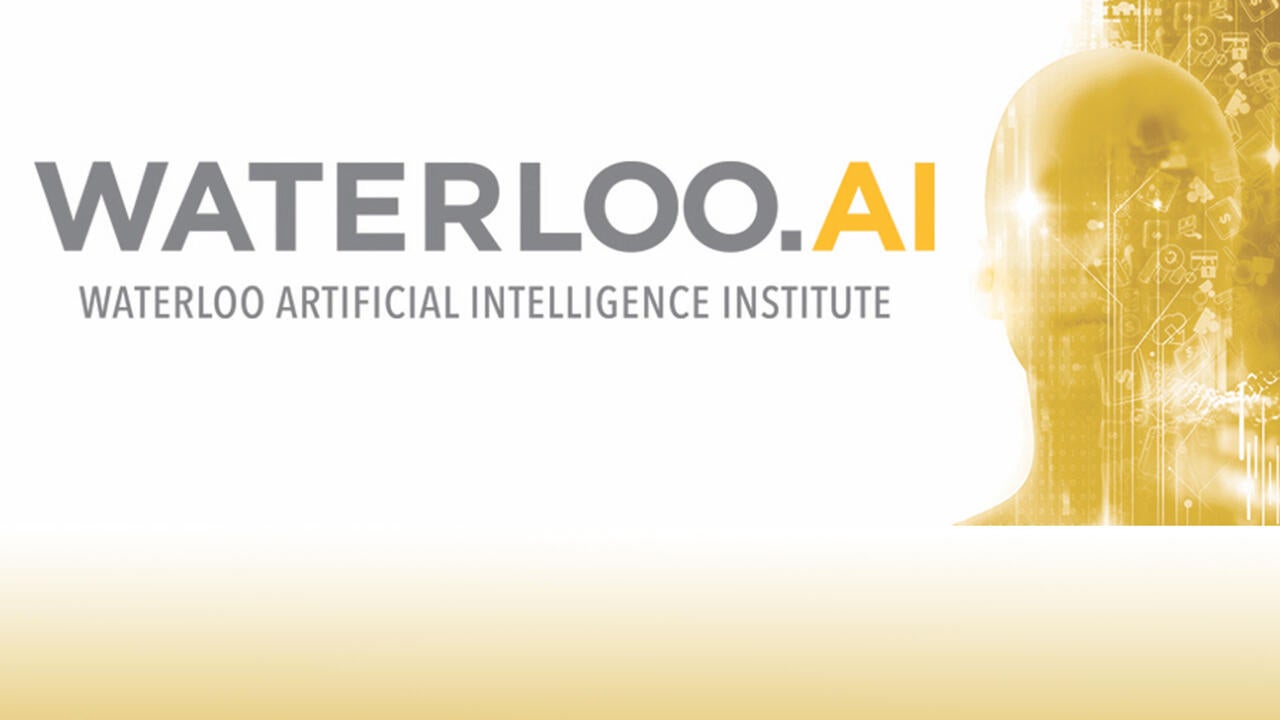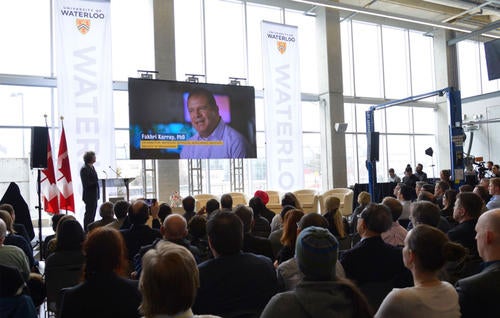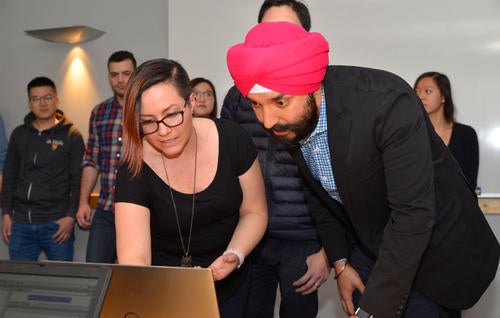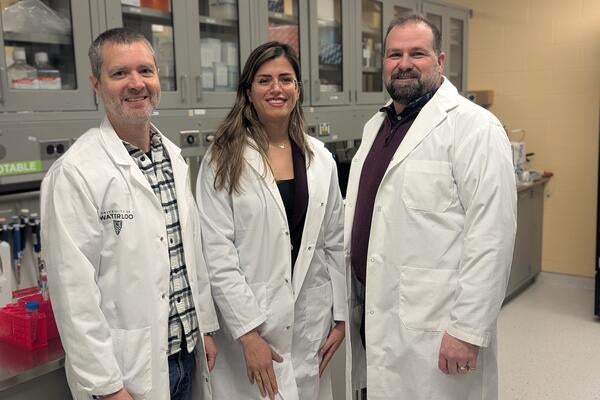
New institute set to make Waterloo AI research 'shine'
Waterloo.ai will focus on fostering and supporting campus-wide AI research.

Waterloo.ai will focus on fostering and supporting campus-wide AI research.
By Brian Caldwell Faculty of EngineeringA new institute at the University of Waterloo will focus on fostering campus-wide research into artificial intelligence (AI) and provide a portal for organizations to access its extensive expertise in the rapidly growing field.
Officially launched last week, the Waterloo Artificial Intelligence Institute will bring together almost 100 faculty members to tackle practical and fundamental problems brought to them by partners in business, government and the non-profit sector.
“Industry collaboration has long been one of the major strengths of the University of Waterloo and we continue in that tradition through the institute's many planned activities,” said Fakhri Karray, an electrical and computer engineering professor who is co-director of the new AI institute.
“We want to make sure that the efforts and work being done by our professors, researchers and students shine to the outside world and benefit society.”

A joint venture of the engineering and mathematics faculties, the institute will also include researchers from applied health sciences, environment and science, and be affiliated with almost 40 existing research labs, centres and institutes.
In addition to an emphasis on work driven by the real needs of industry, the institute is distinguished by a mandate to cover a full range of research from foundational to operational AI.
Foundational AI involves primarily abstract research, such as the design of powerful new algorithms in the field of machine learning, while operational AI is concerned with adapting existing tools and techniques for applications that may not require a tether to cloud computing resources.
“The synergy of these two areas – operational AI and foundational AI – will help us solve new problems that industry and the public sector bring to us,” said Peter van Beek, a computer science professor who is the institute’s other co-director.
Estimates suggest AI will contribute up to $15.7 trillion a year to the global economy by 2030, prompting the Canadian government to identify it as a key to innovation that will create good middle-class jobs.
Waterloo experts are concentrating on new areas of research with significant business and societal impact. Included are AI applications in health care, environmental protection, supply chain, urban planning, manufacturing, finance, autonomous vehicles and human-machine interaction.
 Recent work involving AI at Waterloo has included the recognition of distracted drivers, the detection of cancer and heart disease, and teaching machines to understand language.
Recent work involving AI at Waterloo has included the recognition of distracted drivers, the detection of cancer and heart disease, and teaching machines to understand language.
Karray said that while AI has been around for about 60 years, the technology has taken off in the last decade or so due to the availability of vast amounts of data that can be mined for patterns and other valuable information.
That mining is enabled by the use of cloud computing or powerful, newly developed coprocessors, technology that is known as 'edge AI.'
“In almost any area you can think of where there is an abundance of data, we can utilize the many powerful tools of AI, such as deep learning,” Karray said. "This applies to image recognition, speech transcription, natural language understanding, real-time translation, accurate prediction of weather, financial markets and traffic flow, to name a few."
Educating both graduate students and employees of partner organizations in the use of AI is also an important objective of the institute.
Van Beek said there has been a great deal of initial business interest in “reverse co-op” courses, likely to be about a week long, because “there is a desperate shortage of people who are qualified in this area.”

The institute, which will also collaborate with several existing institutes in Canada and the United States, was announced at an event attended by dignitaries including Navdeep Bains, the federal Minister of Innovation, Science and Economic Development.
“We see this as an economic opportunity,” said Bains. “We're making a big bet on research, but we're also focusing on commercialization.”
Feridun Hamdullahpur, president and vice-chancellor of Waterloo, said the institute is the culmination of work that started long before AI became a hot topic.
“We didn't wake up one morning and decide, like many other institutions, that we should have some sort of focus on AI,” he told a few hundred guests at the Sedra Student Design Centre. “This happened here organically.”
Pearl Sullivan, dean of engineering at Waterloo, put the importance of AI in perspective as she kicked off a panel discussion featuring government, academic and business leaders.
“This is going to impact our businesses, our economy and our lives,” she said.
Sponsors of the institute include General Motors Canada, Huawei Technologies Co., Loblaw Companies Limited, Nutrien, Shopify, Borealis AI (RBC), Magna International, Miovision Technologies, NexJ Systems and Scribendi.

Read more
Researchers engineer bacteria capable of consuming tumours from the inside out

Hand holding small pieces of cut colourful plastic bottles, which Waterloo researchers are now able to convert into high-value products using sunlight. (RecycleMan/Getty Images)
Read more
Sunlight-powered process converts plastic waste into a valuable chemical without added emissions

University of Waterloo researchers Olga Ibragimova (left) and Dr. Chrystopher Nehaniv found that symmetry is the key to composing great melodies. (Amanda Brown/University of Waterloo)
Read more
University of Waterloo researchers uncover the hidden mathematical equations in musical melodies
The University of Waterloo acknowledges that much of our work takes place on the traditional territory of the Neutral, Anishinaabeg, and Haudenosaunee peoples. Our main campus is situated on the Haldimand Tract, the land granted to the Six Nations that includes six miles on each side of the Grand River. Our active work toward reconciliation takes place across our campuses through research, learning, teaching, and community building, and is co-ordinated within the Office of Indigenous Relations.